Amid declining number of NK defectors, Hanawon turns to vocational training
No. of defectors declines from 1,047 in 2019 to 67 in 2022, following prolonged COVID-19 border closure
By Ji Da-gyumPublished : July 10, 2023 - 17:25
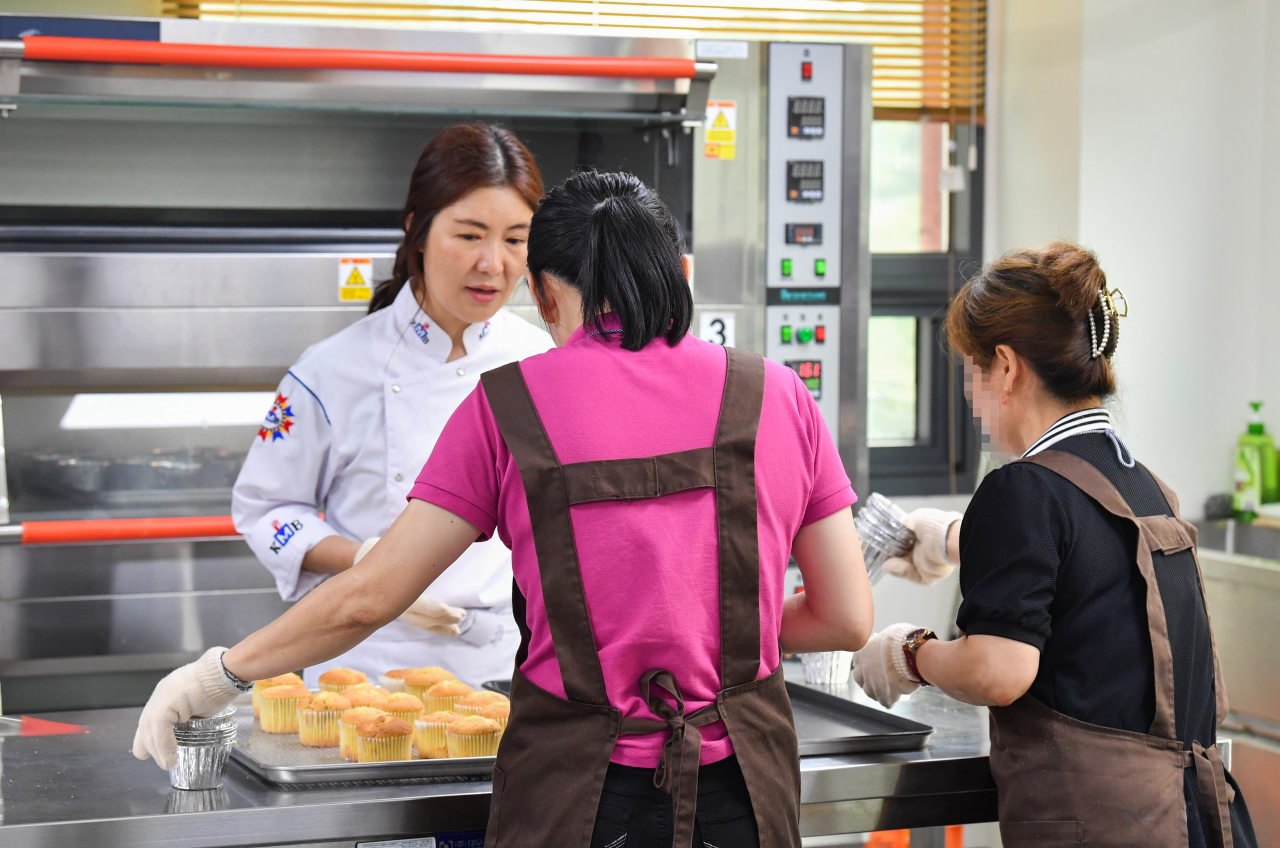
ANSEONG, Gyeonggi Province – Hanawon has proactively expanded its primary role by offering a diverse array of vocational training programs in order to empower North Korean defectors and equip them with the skills necessary to pursue in-demand careers as baristas, estheticians, manicurists and pet groomers.
Before embarking on their journey of assimilation in South Korea, a destination once distant but deeply yearned for, every North Korean defector must pass through a crucial checkpoint: the Hanawon resettlement center.
Having resided on the other side of the inter-Korean border within a system fundamentally different from that of South Korea, North Korean defectors find Hanawon to be a transformative hub. Here, they acquire vital knowledge and skills necessary for integration into South Korean society over the period of three months, paving the way for a new chapter filled with hope and opportunities.
But Hanawon, formally known as the Settlement Support Center for North Korean Refugees, has intensified its efforts to redefine its main purpose. The response comes as the Kim Jong-un regime's prolonged border closure amid the COVID-19 pandemic has made it increasingly difficult for North Koreans to flee.
The number of North Korean defectors entering South Korea has experienced a significant decline, with figures dropping from 1,047 in 2019 to 229 in 2020, according to data provided by Seoul's Unification Ministry. This downward trend has continued, with only 63 defectors in 2021 and 67 in 2022. As of March this year, a mere 34 North Korean defectors had successfully made it to South Korea.
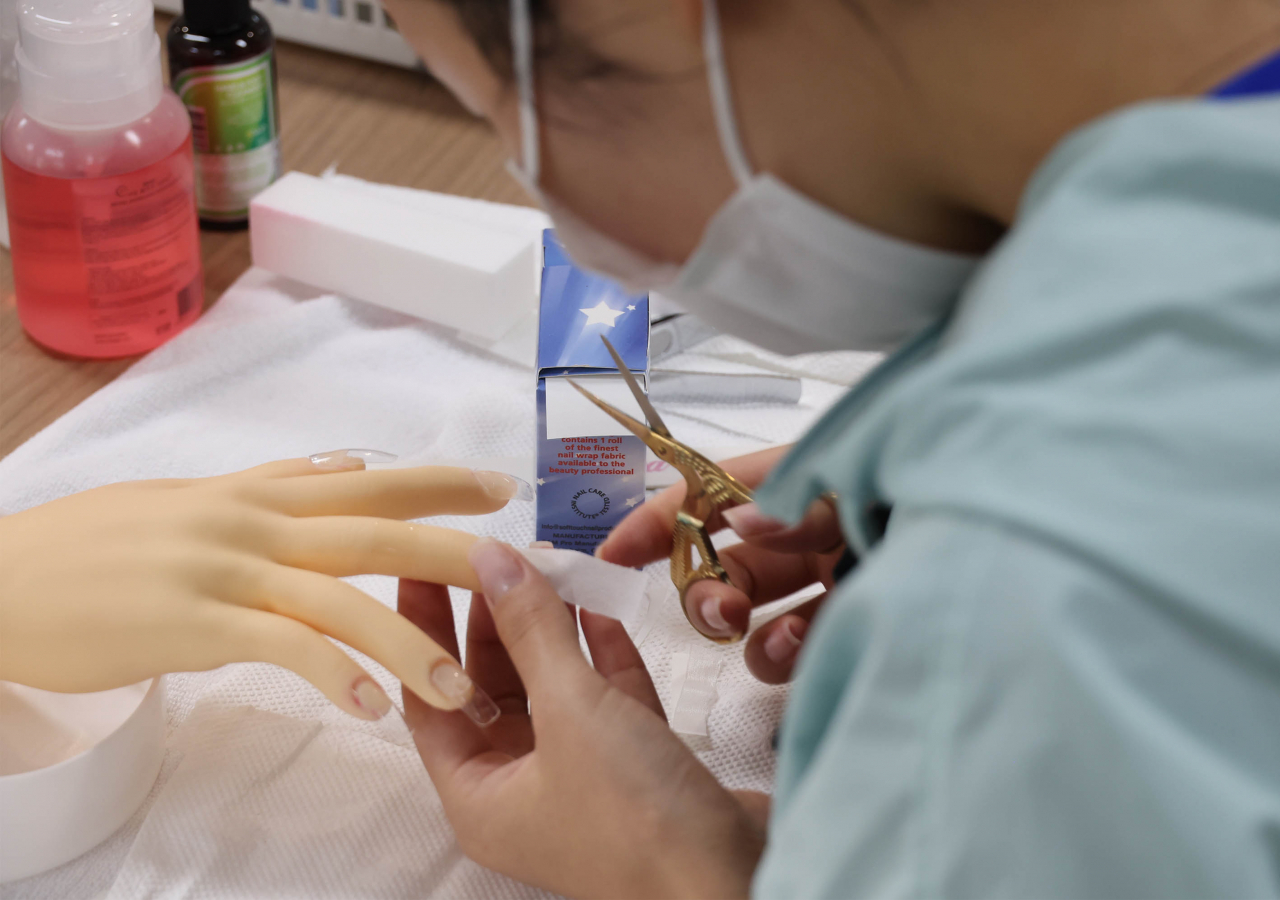
The Settlement Support Center for North Korean Refugees chief Seo Jung-bae said on Monday that the center has made efforts to reallocate its remaining resources to offer a comprehensive array of on-the-job training courses for North Korean defectors residing in South Korea.
At Hanawon, North Korean defectors have the opportunity to undergo a two-month vocational training program with the ultimate objective of obtaining a national certificate.
The vocational training encompasses a wide range of professional courses designed to enhance their skill sets and enhance their employment opportunities.
These comprehensive courses at Hanawon cover a diverse range of fields, including Korean, Chinese and Japanese cuisine, hair styling, nail art, makeup application, skin care, tourism management, hotel housekeeping, baking and barista skills.
In addition, Hanawon provides training in industrial sewing, clothing alteration and repair and professional laundry services, as well as basic electronic technology and electronics manufacturing.
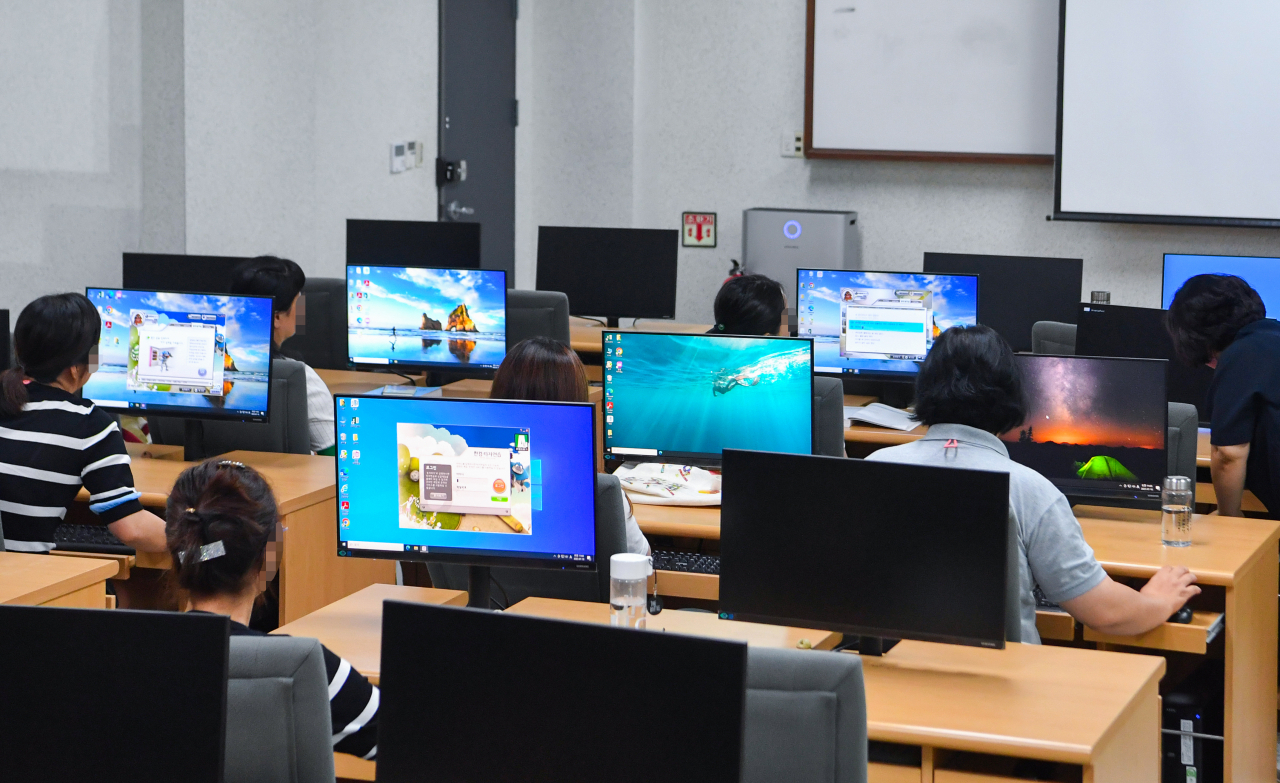
Around 250 North Korean defectors have participated in the training program as of Monday dating to June 2020, when a four-story vocational training center was built inside Hanawon. Currently, around 20 defectors are undergoing training at the center. The pass rate for the state-run tests conducted after the training program stands at around 93 percent.
"We are also revising the occupational categories to better align with the strengths and abilities of North Korean defectors in our society. We have already introduced job training courses that allow them to utilize their strengths effectively," Seo told local and foreign media outlets during a news conference at Hanawon on Monday, in what was the first such event since 2016.
"Considering the changing market trends and potential opportunities, we've broadened the range of training courses available in the second half of this year. This includes expanding into areas such as construction and carpentry, pet grooming, rice cake production and wallpaper installation."
Kwon Young-se, South Korea’s outgoing Unification Minister, emphasized the significance of offering vocational training in response to the evolving job market and shifting economic landscape.
"Certain occupations that North Korean defectors were previously engaged in may no longer be viable in South Korea, while new occupations are emerging that require specific skills training. We are committed to continuously developing and enhancing our programs to address any challenges and meet changing demands."
Kwon emphasized that the ministry will continue developing programs for North Korean defectors to receive the necessary skills and training to succeed in the dynamic and evolving economic environment of South Korea.
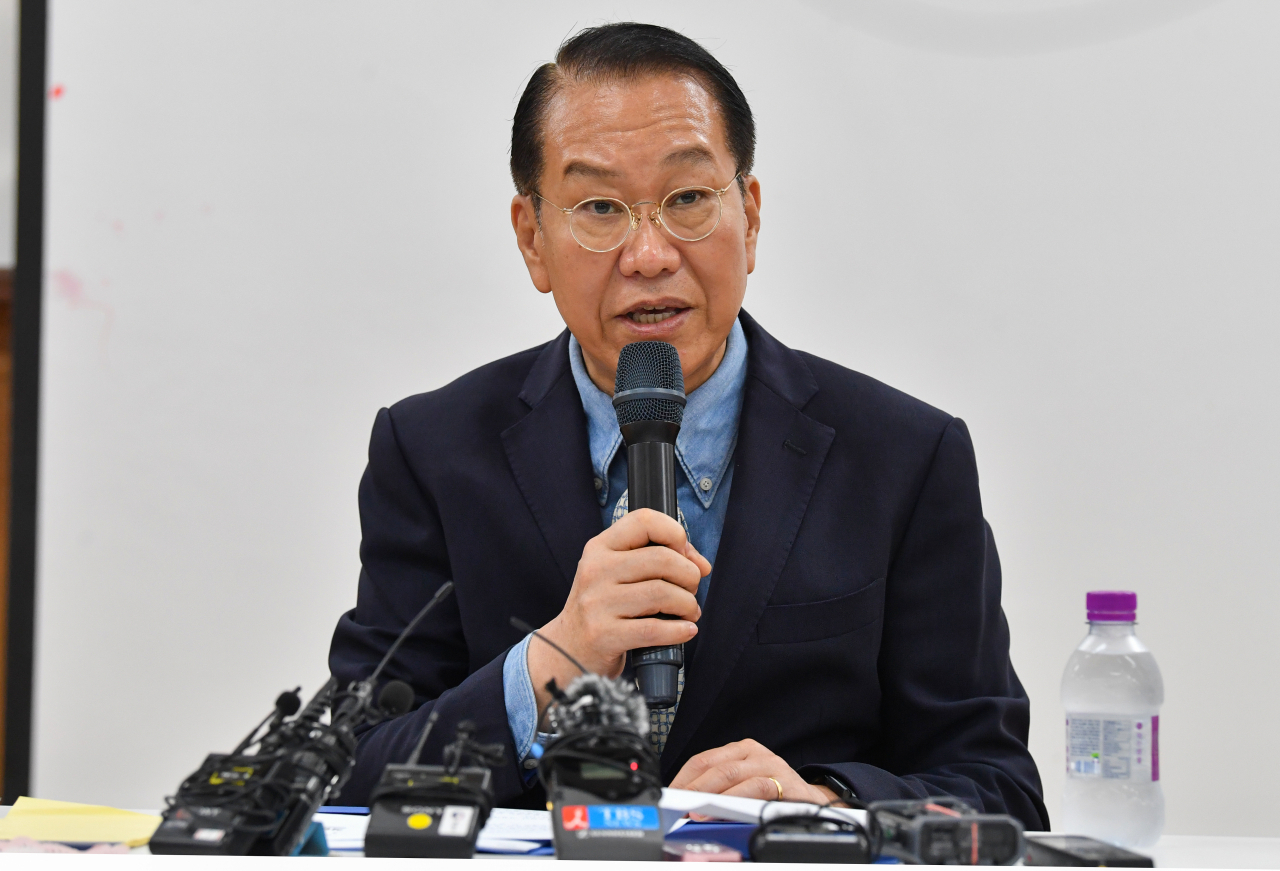
"Hanawon is an institution that guides us in exploring our interests and finding ways to make a living based on our choices. It goes beyond determining whether the education provided by Hanawon is helpful or not," according to an anonymous defector who recently entered Hanawon for resettlement education, during an interview with reporters at the facility.
This defector, in her 30s, left North Korea in 2014 and arrived in South Korea this year after residing in China.
"I didn't know what kinds of options I had in my hands. But the institution now offers an opportunity to consider and explore different possibilities," she added.
In a rare move, South Korea's Unification Ministry permitted local and foreign media outlets to interview three North Korean defectors who recently arrived in South Korea at Hanawon.
During their interviews, they shared that they had to flee North Korea in order to survive.
"From the age of 10, there was no food distribution, and my mother's business also deteriorated. To make matters worse, the security forces confiscated the little rice we had," another anonymous defector in her 30s, who escaped from North Korea in 2004, said.
"During that period, I suffered from severe malnutrition, and I believed that I would die if I continued in that state. When I learned that my sisters were going to China, I made the decision to follow them. I crossed the Tumen River, recognizing it as my only chance for survival."
All three fled to China, but the harsh reality of staying in China without identification became even more difficult due to COVID-19. They were not able to receive medical care or move within China as restrictions intensified.
"I was an illegal resident, and my salary was only half of what Chinese workers were earning. I felt that it was extremely unfair to be underpaid and felt sorry for myself being confined to home (of my employer)," said another defector who left North Korea in 2019. "I longed to live confidently as a human being in a place where human rights are guaranteed, and where I have my own identification."
But the three are hopeful about the next chapter of their lives in South Korea despite the challenges they have faced.
"Previously, I couldn't even imagine doing the things I now have the chance to do. I have great hopes for succeeding in them," the first unnamed defector said. "As I live in Korea, I now worry about how I can earn a substantial income and contribute through taxes as a way of paying back their help."





![[KH Explains] No more 'Michael' at Kakao Games](http://res.heraldm.com/phpwas/restmb_idxmake.php?idx=644&simg=/content/image/2024/04/28/20240428050183_0.jpg&u=20240428180321)









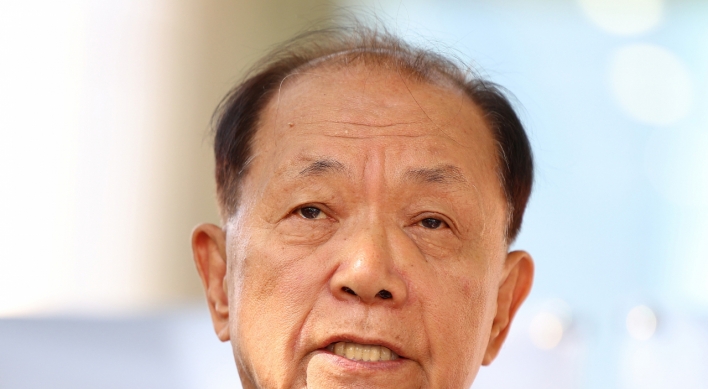


![[Herald Interview] Mistakes turn into blessings in street performance, director says](http://res.heraldm.com/phpwas/restmb_idxmake.php?idx=652&simg=/content/image/2024/04/28/20240428050150_0.jpg&u=20240428174656)
